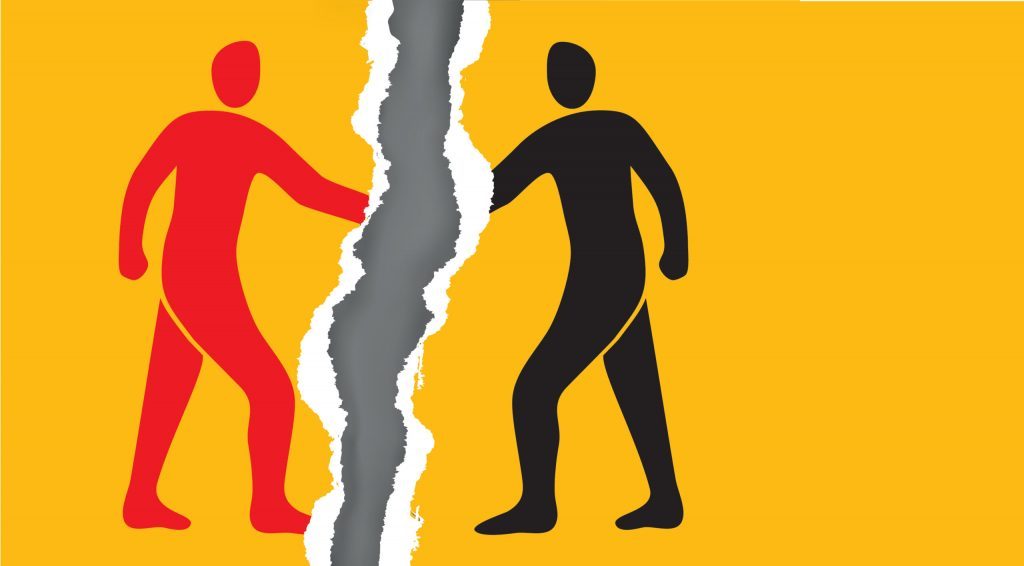What business leaders can learn from modern military experience
The best military and commercial strategists are considering questions of long-term legitimacy
“If you want to change the world, start off by making your bed” – former US Navy SEAL Admiral William McRaven famously advised a graduating class at the University of Texas.
Every military career starts with this focus on detail, discipline and routine, with plenty to polish, iron and fold. Like the Karate Kid, there are hours to spend in repetition and forming habits that ensure reliable performance under pressure.
These habits transfer well to civilian roles, and employers regularly note the reliability of military veterans and their self-discipline and effective teamworking. Veterans can bring cohesion and operational resilience to almost any organisation.
For those soldiers, sailors, airmen and marines who rise through the ranks, military experience brings a wealth of additional insights which are increasingly important to civilian leaders, especially in a commercial environment subjected to the shocks of COVID-19, international political tensions, and domestic social unrest.
The really big change is at the strategic level – and this is where the greatest implications are for businesses
And among those who rise to the very top a new pattern of thought is emerging that anticipates and responds to a new crisis, the crisis of legitimacy that threatens the commercial and the public sector alike. Commercial leaders who take note will be best placed to ‘win the future’.
Over the past 20 years I’ve met with hundreds of military veterans, from private soldiers to four star generals and admirals, as they transition to civilian life. I’ve also met with political leaders and government officials responsible for national security. Over these two decades our servicemen and women have been busier than at any time since the second world war, and they’ve been learning and adapting at an unprecedented rate.
As the private sector adapts to disrupted supply chains, suppressed demand, economic recession and diminishing trust in public and private institutions, some of these lessons apply at the tactical, and the operational levels. But the really big change is at the strategic level – and this is where the greatest implications are for businesses.
Small team habits – cohesion and resilience
For soldiers on the ground, the wars in Afghanistan and Iraq have provided unprecedented levels of complexity. Agile adversaries in challenging physical environments at the end of extended logistic chains have tested the capabilities of individual soldiers and small teams. The habits highlighted by Admiral McRaven hold true and time and again it is team cohesion based on self-discipline, shared values and mutual trust that have proven the bedrock of performance in changing circumstances.
Organisational adaptability – systems innovation
Likewise, larger military formations and their leaders have adapted to the distributed and networked nature of their adversaries by enthusiastically embracing new technology and methodology. General Stanley McChrystal’s ‘Team of Teams’ summarises how he adapted the hierarchical siloed structure of the US Military to match and overtake the tempo of his rivals. His analysis makes excellent reading for leaders who need to improve the performance of distributed teams in complex environments.
Strategic foresight – winning hearts and minds
But the most compelling insights with the most importance for defence and commerce alike come from those who have risen high enough, or been maverick enough, to question the fundamentals of their mission. And the pattern that has emerged is that they come to focus on identifying, earning and building legitimacy and trust.
With the military interventions in Afghanistan and Iraq widely regarded as costly errors notwithstanding the heroism and dedication of the people involved, many senior leaders have had grounds to consider fundamental assumptions about the role of their organisations. We in the private sector can learn from this.
Winning the wrong arguments
Just as advanced western militaries have been winning firefights but losing the support of the people they’ve set out to liberate and protect, so, many commercial organisations are getting better and better at doing the wrong thing. Technology companies continue to deliver ever more brilliant technology, yet voters and politicians chide them for threatening jobs, increasing inequality and embedding biases.
Now is a time for both military and commercial leaders to lift their eyes from internal improvements and face the future. The threats that we have responded to and overcome in the past may still be present, but new ones are becoming much more important. Distracted by the dramatic and urgent challenges of terrorism and expeditionary warfare, military and security thinkers have left an exposed flank, and patient aggressors have exploited this with techniques that attack the fundamental fabric of our societies, undermining our trust in our institutions – and in each other.
For business leaders it’s time to recognise that faith in business is lower than at any point in our lifetimes. Across the developed world, appeals to populism and anti-business rhetoric threaten the commercial assumptions of large and small businesses alike. We cannot assume a benign market environment as the social and economic effects of COVID-19 manifest.
Winning hearts and minds
Military and security leaders are responding with the tools of persuasion. These hardest of men and women are turning to the tools of soft power. Rather than kinetic weapons and heavy metal armour, they are deploying the expertise of anthropologists, cultural experts and behavioural economists to counter the threats they’ve identified to that most vital strategic resource – national cohesion.
For commercial leaders, this vital resource is a company’s social licence to operate. As the economic conditions tighten, every company will face questions about its legitimacy. Those that have accepted government support through furloughing staff or guaranteed loans will be expected to deliver for taxpayers as well as customers, employees and shareholders. And companies seen to break faith with keyworkers, volunteers and carers can expect costly reputational damage or worse.
It follows that successful commercial leaders will be those that adopt a longer term view and ensure that their companies are seen to express more broadly shared values – values that appeal beyond their traditional stakeholder set. Critically, businesses must become better at justifying their value not only in economic and technical terms, but in social and political terms. Otherwise they can expect short shrift from voters and politicians.
COVID-19 is not the fault of businesses, but it has exposed fault lines in our communities that we must fix, and if businesses are not seen as part of the solution, they will be punished for being part of the problem.
Now is a time for commercial leaders to become champions of cohesion, and to adopt the tradition of leadership embedded in the motto of the Royal Military Academy, Sandhurst – ‘Serve to Lead’.





